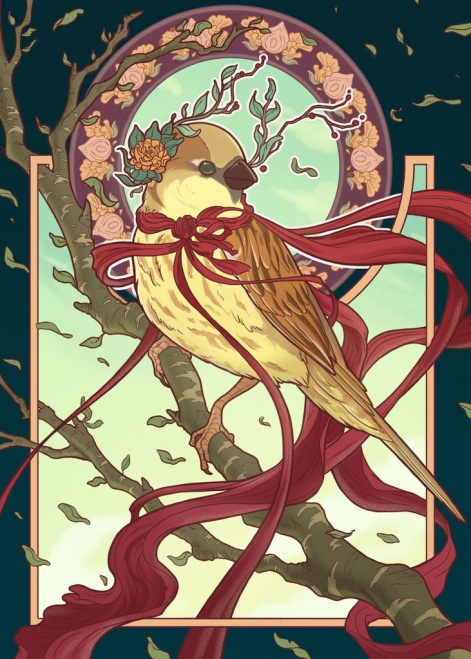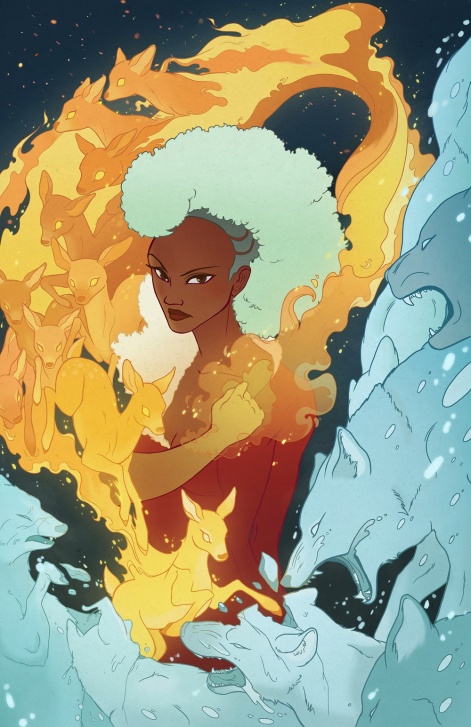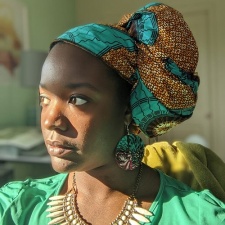For decades, no matter the industry, people of colour have suffered through a lack of opportunity and a lack of respect, leaving them stuck playing second fiddle throughout their careers.
The games industry is no different, and here at PocketGamer.biz we wanted to do our part and help bring attention to the many incredible people of colour that help make up this sector.
That is why we are committing to a new long-term regular feature to spotlight these people and their careers.
So, welcome to our 'POC in Mobile' series, where discussion about finding a place in the games industry, the various challenges faced as a minority, and what truly needs to be done to make games more diverse will be the focal points of conversations.
This week, we spoke to Zynga associate art director Lauren Brown about fighting imposter syndrome, how to address natural biases when hiring and why creating a welcoming, friendly environment can make all the difference in the world in employee longevity.
PocketGamer.biz: Can you start off by telling us about your role in games and what it entails?
Lauren Brown: I am currently acting as an associate art director: I am in charge of reviewing the team's artwork and ensuring that the work going into the game works with maintaining the visual look and feel of the game while being accessible and enjoyable for players.
I am also a manager, so I am in charge of my team's career success and guiding them on the right path for what their goals are.
Why did you want to work in the games industry?
I've been playing games ever since I was about six years old, to the point where I would design my own player's guides and characters/levels/stories, etcetera.
Don't depend on the affected to take on the emotional burden of figuring out solutions to every problem.Lauren Brown
I have always loved games but didn't actually consider it as a viable career option until after I graduated from college and worked in the animation industry.
I realised that the games industry allowed for more learning and expansion of my career and knowledge, and the opportunity to create and impact what players could experience in a game was too enticing to pass up.
How would you recommend people get started in games? Any tools or literature you would advise?
I would recommend learning as much as you can about what goes into game development; follow game developers who are out there doing what you want to be doing.
Experiment with working in Unreal or Unity, or a comparable game engine. There are multiple resources online available absolutely for free to get you started.
I would also recommend joining a game jam team. Working collaboratively and failing and succeeding in game creation on a team is the best way to replicate the actual experience of what it looks like to work in games.
If you're an artist, I would also recommend looking at professional portfolios of a similar role to what you aspire to as well as how it's presented. Look at the quality, polish and subject matter represented and aim for that level of polish in your own portfolio. Don't copy, but use it as a springboard for inspiration.
What did you study (if anything) for your role? Are there any courses out there that you would advise for aspiring professionals?
I went to school for illustration but did not study game design specifically. When I was applying for a job in the industry, I researched Agile, Scrum, the industry-standard game engines, the pipeline and more. I wanted to be as prepared as possible going into it but I learned the most when actually on the job.
Since I was applying for an art role, specifically, I was able to apply my art main skills pretty much one-to-one. so everything else I learned was a plus.
What do you think should be done to improve diversity, not only across the games industry, but across all industries?
I think several things can be done at various different levels. Many people think they have to wait for the people affected by the lack of diversity to do something before change can happen, but if anything is going to change, we desperately need the help and action of our allies to work together and make that change.
Don't depend on the affected to take on the emotional burden of figuring out solutions to every problem. Diversify where you look to hire. Make sure that when you get underrepresented employees in, that you're actually welcoming them into a truly inclusive and equitable environment. Many people churn out of the industry after a few years because of how unfriendly the environment can be.

Reach out, support marginalised communities and be consistent about it. The work is constant and never-ending, so share the burden to make the change actually happen. Only seeing marginalised groups when they're actively in pain and then forgetting about them is performative at best. Make your support a part of your daily language.
What are the biggest challenges you have encountered since joining the industry?
It was the feeling early on of fighting against impostor syndrome: the feeling that I didn't deserve what I received. Lately, it has gotten a lot better as I have gained more experience and spoken from more of a place of knowledge, but at first, it can be difficult speaking up and feeling confident in a space full of people who don't look like you.
As those people become more familiar with you and respect you, it becomes easier each day. Your manager makes a ton of difference in your experience as well and if you get stuck with a bad one, it's not easy to build confidence or your career. Try not to let the toxic mindset that you're not good enough stop you from getting out of that situation - even if it's being perpetrated by people who don't support you. There are people out there who will uplift you. The sooner you can find them, the better it will be on your mental health.
There are people out there who will uplift you. The sooner you can find them, the better it will be on your mental health.Lauren Brown
What do you think can be done to help encourage more people of colour to get into games?
I think a lot of the onus is on the people who are already in the room and also in the games we make. The more people of colour see themselves represented, the more we internalise that maybe there is a space for us in the industry.
Access can also be a huge issue, so awareness around the resources that are free or cheap need to become more widely available to many communities. Games need to be a more viable and welcoming career option to POC and currently, there is so much toxicity from the community around gender, disabilities, race, LGBTQ+, etcetera. that it becomes all too easy to discount that it as a healthy path for anyone who isn't white and male.
Is there anything that recruiters should be doing differently to address the lack of diversity across not only games development but all industries?
Blind resume reviews can be one option. Bias has a way of creeping into every part of the process of getting POC into the industry and we have to try to eliminate all the areas where there's a chance for it. Look at the demographics of the colleges that are being sourced. If it's looking homogenous, then it might be time to start looking at different sources.
Make sure the interview panels are diverse; I have seen far too many that only consist of white men. As always, be consistent in your efforts to source talent of colour. There are even hashtags on Twitter that allow talent to showcase themselves: #drawingwhileblack #IamPOCinPlay and #WomenInGaming are among just a few ways to see the wider hiring pool out there.
As the industry is benefitting more and more from the ability to create games remotely, we are less limited to the environment that these studios are located in. This is a prime opportunity to source diverse talent from an array of locations.
Since the surge in the #BlackLivesMatters campaign that took place last year, what changes (if any) have you seen from across the industry to address the issue?
I've seen more efforts being made to donate and to hire, but again, a lot of these measures have been a one-and-done deal. I have heard many stories of companies not following up on their list of potential hirees and not continuing the efforts they promised to commit to.

I do feel like this last wave has raised a lot more awareness around the issues that Black people and POC face in the industry, but there is still much work to be done to keep the momentum going.
What advice do you have for other people of colour that are looking at getting into games?
Don't allow yourself to be your own worst enemy. We have enough issues to face being accepted as professionals for our own minds to be telling us that we're not good enough or not worthy.
The game industry needs us and this our time. Put in the work to make you undeniable to these companies, and research and apply to everywhere you can once you're ready. Remember that you don't have to fill every single requirement on a job listing.
If you're not already working in games, you have nothing to lose. Take advantage of the vast network out there to meet people and the free resources right at your fingertips to arm yourself with knowledge and support. Above all, be authentic, and be a good team player. People will know you well in this small industry, so make sure you make a positive name for yourself.























